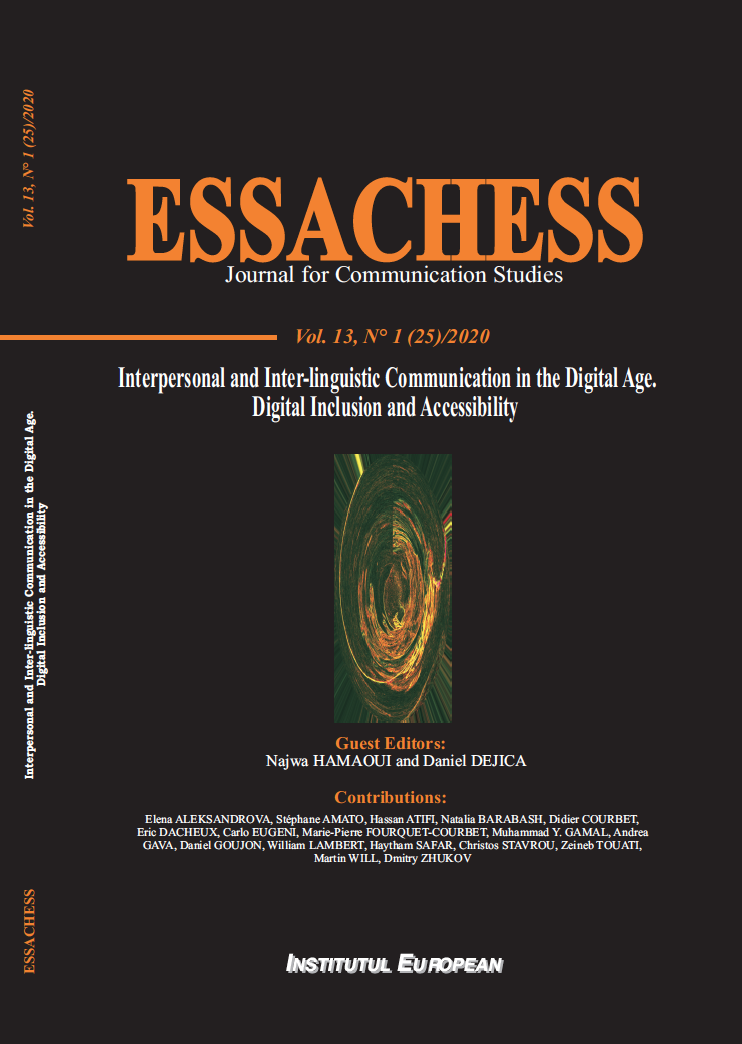Inclusion et médiation linguistique : apport des nouvelles technologies de l’information et de la communication
Inclusion and Linguistic Mediation: Contribution of New Information and Communication Technologies
Author(s): Haytham Safar, Andrea Gava, William LambertSubject(s): Social Sciences, Language studies, Education, Media studies, Theoretical Linguistics, Communication studies, Semantics, Pragmatics, Comparative Linguistics, Western Slavic Languages, Eastern Slavic Languages, Theory of Communication, School education, Higher Education , State/Government and Education, Social psychology and group interaction, Cognitive Psychology, Neuropsychology, Personality Psychology, Psychology of Self, Psychoanalysis, Translation Studies, Inclusive Education / Inclusion, Sociology of Education
Published by: ESSACHESS
Keywords: audiovisual translation; inclusion; impairment; linguistics mediation; users with special needs;
Summary/Abstract: This article questions the linguistic mediation through the analysis ofpractices related to virtual technology tools in the field of users with visual andhearing impairment taking into consideration their sensitivity and civil rights. Theissues of the inclusion of a person who does not speak the language of a conferenceas well as the inclusion of a deaf, hard of hearing, blind or partially sighted audienceare discussed on the basis of a methodology that articulates the comparativeapproaches by comparison and / or distinctions of audiovisual translation platforms(with emphasis on Discord) and interview with users and trainers in audiovisualtranslation and linguistic mediation. The results highlight that digital inclusion ispossible and effective depending on the devices suggested and tested, with usageprotocols in place that favour free access
Journal: ESSACHESS - Journal for Communication Studies
- Issue Year: 13/2020
- Issue No: 25 (1)
- Page Range: 123-152
- Page Count: 29
- Language: French

